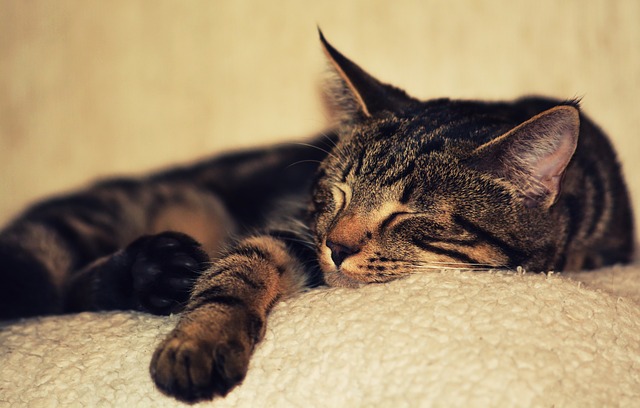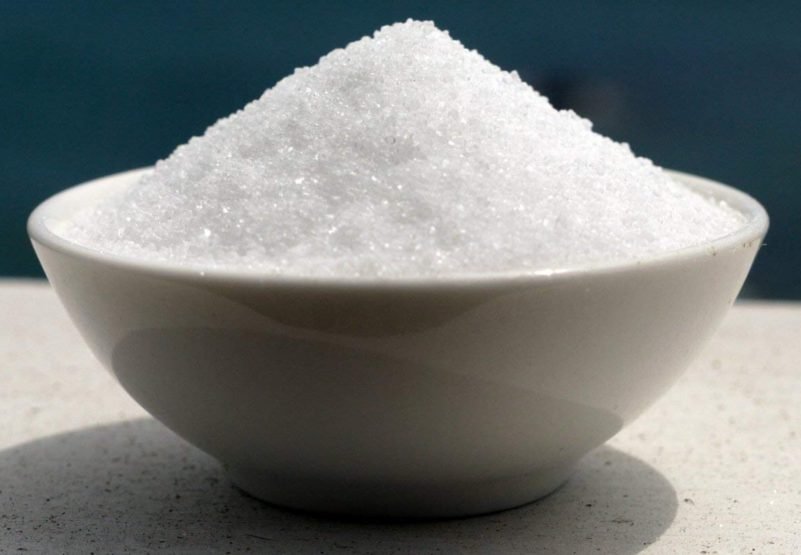Let’s all agree that cats are smart and curious animals.
You’ll leave your chocolate on the kitchen counter for a short call, only to come back a few minutes later to find your fluffy licking the last drops of it.
And before you know it, you’re calling your vet for diarrhea complications.
As a cat parent, one thing you should understand is the fact that if a specific food or product is safe for you does not necessarily mean it’s safe for your cat.
If you’ve been wondering whether erythritol is safe for your cat, this post is for you.
But before we find out, I think it’s only right that we start with the basics:
What is Erythritol?
Though the word may sound new, erythritol has been around for a while.
It’s a carbohydrate type referred to as sugar alcohol, and most people use it as a substitute for sugar.
From as early as 1990, erythritol has been manufactured as a human-made sweetener, and you can easily get it in stores.
Erythritol is mixed with other sugar substitutes like stevia, aspartame, and Truvia to thicken or sweeten sugar-free products.
You can also get it naturally through some foods or when things like cheese, wine, and beer ferment.
Is Erythritol Safe For Cats?
Yes, Erythritol is safe for kitties to sample. Unlike most sweeteners, erythritol cannot cause blood sugar spikes in your cat.
And because erythritol is a sugar alcohol, it gets absorbed into your kitty’s body without being broken down. This translates to one vital health benefit: fewer calories for your feline friend.
However, you don’t want to give your cat too much of this sugar alcohol as excessive consumption can have severe effects.
First, it will spoil the cat’s taste for her own food, and overconsumption can eventually lead to obesity.
And just like humans, cats are known to deal with diabetes, so over-feeding them sugary treats (especially those that are diabetic) can worsen the condition.
Excessive consumption of Erythritol can also cause gastrointestinal problems in cats.
Sugar alcohols are known to draw water into most pets’ guts during digestion, increasing the amount of liquid in their stool, potentially causing diarrhea.
Finally…
In perspective, there is a good reason why cats (and pets in general) have their own snacks and foods. So, it’s never a good idea to give them too much of your table food.
Besides, veterinarians agree that a cat’s palate has challenges processing sweet foods. This is something to keep in mind the next time your fluffy gets overexcited at the smell of sweet food, and you’re tempted to throw her a party.
Hey! This is not to mean that you should be too tight with your cat. If you notice that she is curious about erythritol, or any other candy, use your finger to fetch a tiny bit and let her taste that—and that’s it!
How to Keep Your Cat Safe after Consuming Excess Erythritol

If your cat consumes a product with erythritol or any other sugar alcohol, and they start to show abnormal behavior, don’t hesitate to visit your vet clinic.
A veterinarian will conduct the necessary tests on your cat’s blood sugar and make the required treatments if there are abnormalities.
If your cat has consumed excessive erythritol but is still acting normal, it is still advisable to visit your vet clinic to ensure the amount ingested will not harm her.
Otherwise, the following are some of the precautions you should take to ensure your cat does not consume excess erythritol without your knowledge:
- Keep your erythritol products in airtight containers or jars and in places where cats cannot reach them.
- When using erythritol or any of its products, ensure your cat is in a different room to avoid temptations.
- Always ensure your house has cat-friendly treats to give your cat when you’re having your sugar alcohols.
- Remind your family members and guests that the cat should not get sweet treats every time they ask for it.
Closing Thoughts
Erythritol is relatively safe for your cat, but excessive consumption can have severe effects.
As a responsible cat parent, your cat’s well-being is of utmost importance, and so you don’t want to give them something that can complicate their health.
And why take a gamble with artificial sweeteners when there are lots of acknowledged health-sensitive cat foods and treats out there?
Related Post: Is Stevia Safe for Cats?

Hi! I am Eleanor Price. I started this website after my cat, Louie, almost died from a case of botulism (a type of food poisoning often caused by bacteria that grow on food items). Turned out that my cat’s diet was the problem. I have made it my duty to provide the best information and recommendations about everything cat lovers need to know about their felines’ health and wellbeing. My goal is to find the most informative content on anything feline-related and share it with fellow hardworking kitty lovers.

